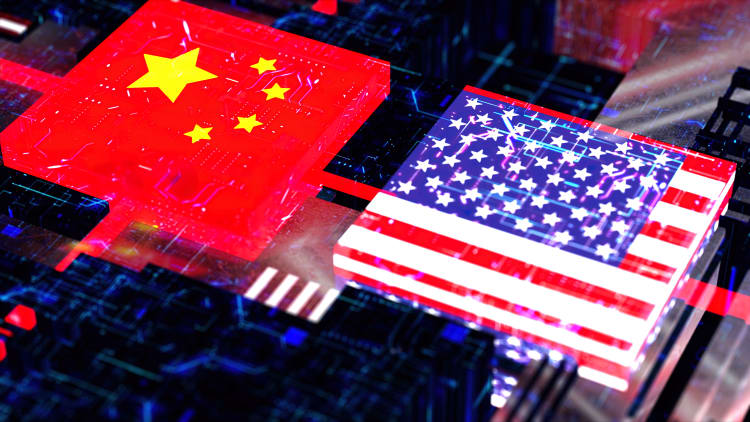[ad_1]
Alibaba Group sign is seen at the World Artificial Intelligence Conference (WAIC) in Shanghai, China July 6, 2023.
Aly Song | Reuters
Chinese technology giant Alibaba on Friday launched an artificial intelligence tool that can generate images from prompts.
Tongyi Wanxiang allows users to input prompts in Chinese and English and the AI tool will generate an image in various styles such as a sketch or 3D cartoon.
Alibaba’s cloud division, which launched the product, said it is available for enterprise customers in China for beta testing.
Tongyi Wanxiang is Alibaba’s latest generative AI offering as tech giants in China and the U.S. look to race ahead with the technology.
Generative AI refers to a type of artificial intelligence that is able to generate content based on prompts. It is trained on huge amounts of data to be able to do this. The most famous example is OpenAI’s ChatGPT which has sparked a rush from the biggest tech players to develop their own rivals.
In the U.S., Google launched its AI chatbot called Bard. And in China, Baidu released Ernie Bot and Alibaba launched Tongyi Qianwen.

There are already AI text-to-image generation services available at the moment. OpenAI’s DALL-E and a service called Stable Diffusion are two of the most well-known.
“With the release of Tongyi Wanxiang, high-quality generative AI imagery will become more accessible, facilitating the development of innovative AI art and creative expressions for businesses across a wide range of sectors, including e-commerce, gaming, design and advertising,” Jingren Zhou, CTO of Alibaba Cloud Intelligence, said in a press release.
Technology giants are treading carefully in releasing these generative AI products so as not to get on the wrong side of regulators. Companies like Alibaba and Baidu have been very specific in the way they have positioned their AI tools. For example, Alibaba is focusing its offerings on enterprises.
That’s because of regulation Chinese authorities have already introduced in anticipation of generative AI technologies. In January, Beijing introduced first-of-its-kind regulation governing “deep synthesis technologies” or images and videos altered by AI. And in April, regulators released draft rules designed to manage how companies develop generative AI products.
[ad_2]

